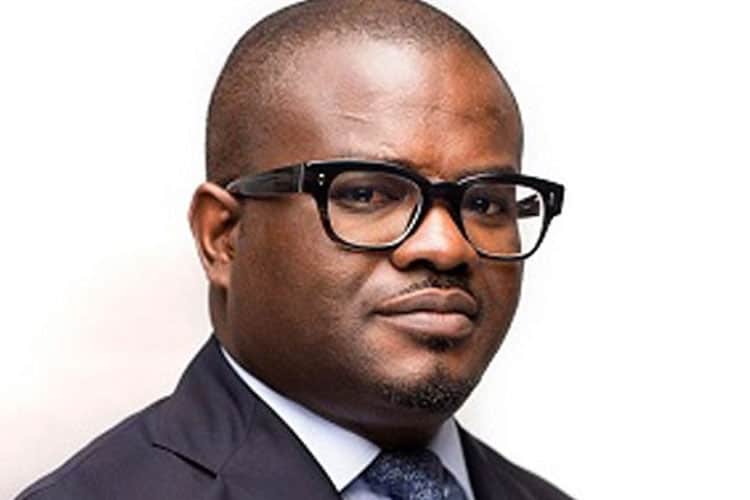Former Ghanaian finance minister Charles Adu Boahen considers himself blessed with the ability to study abroad. He’s also been a lifelong reader. Here’s how an American education and reading authors like Malcolm Gladwell helped Charles Adu Boahen learn how to problem solve.
Charles Adu Boahen feels blessed
After high school in Africa Charles Adu Boahen received the opportunity to do his undergraduate degree at the University of Southern California, majoring in engineering. His interests then led him to the financial world, where he obtained an MBA from the Harvard Business School. After running JP Morgan’s Africa operations from Johannesburg he returned home to Ghana in 2007 and set up a boutique investment bank called Blackstar Advisors and then set up a real estate investment business and then moved into government, eventually serving as Ghana’s finance minister.
From his educational experience, Charles Adu Boahen sees the educational system in the United States as a lot more applied.
“It gives you a set of tools, and with this set of tools, you can deal with any situation. You just have to find the right tool within that toolbox. Whereas the Ghanaian-style education is based on the UK-style education, which is one of memorization. It’s, ‘Were going to teach you all these things, and most likely, the same situation or a similar situation will come about, and then you recall what you learned and apply that,’” said Charles Adu Boahen in a recent interview. “But of course, that then limits your ability to think outside of the box, because if the situation is not as similar to the one before, then it’s very hard for you to respond to it.”
Rote memorization isn’t that valuable to Charles Adu Boahen
For Charles Adu Boahen, the UK system was that way because it was essentially training public servants.
“For the most time, it was either you’re in the army or you’re in the government, or you are an administrator in some colonial territory somewhere around the world, as far as the English educational system was concerned,” said Charles Adu Boahen. “And in fact, the first universities in the UK that catered to Africans, as well as Indians and other of their colonies, was the School of Oriental and Asian Studies. And essentially it was a school out of the University of London where you had these smart and brilliant kids from the colonies that were sent there for their master’s or first degree. And it was essentially a training program to go back and become an administrator or a public servant working for the king, or the UK, in your country.”
What the system did, said Charles Adu Boahen, was it bred a lot of people that were oriented to obeying orders and working according to a certain defined clear set of rules.
Charles Adu Boahen values innovation and problem solving as part of an educational curriculum
“America never had that issue, so their system grew out of trying to be innovative and work with whatever you had, and be a lot more sort of creative in your thinking, and addressing the problems and the challenges that came at you,” said Charles Adu Boahen, adding that by having been exposed to both types of education, he feels the American-style education is a lot more practical, and a lot more geared towards problem-solving, being creative and innovative. “I think that has been very helpful for me throughout my career. It’s allowed me to be able to really drill down quickly to what the essential issue or problem is. And once that is done, it’s much easier to be able to know what you need to do to solve it.”
Charles Adu Boahen was a science student at school, and in school, science is all about formulas; One plus one is two.
“There’s no innovative thinking or engaging. It’s not like philosophy or something that gets you thinking,” said Charles Adu Boahen.
Charles Adu Boahen’s reading list
But post-school, one author that has been quite influential for Charles Adu Boahen is English-born Canadian journalist Malcolm Gladwell and author of The Tipping Point, Blink, Outliers, What the Dog Saw, and David and Goliath.
“Malcolm Gladwell has written a couple of books that I found very interesting, and they’re based on fundamental research about human nature – about what has made people successful and others not,” said Charles Adu Boahen. “You can really see how he arrives at some of his conclusions, and I found that to be quite inspiring.”
A couple of other authors – Thomas Friedman (author of From Beirut to Jerusalem, The Lexus and the Olive Tree, Longitudes and Attitudes, The World Is Flat, and Hot Flat and Crowded) and Michael Lewis (author of Liar’s Poker, Flash Boys, Moneyball and Going Infinite) – have also been quite insightful to Charles Adu Boahen, he said, and have influenced the way he approaches problem solving and the way he thinks about things.
“I’m inclined to be more attracted to people that write based on research and really being able to substantiate what they’re trying to say or do, or whatever hypothesis or theories they’re trying to espouse, based on what they’ve seen happen or the research they’ve done amongst fellow human beings, and how that has impacted their lives,” said Charles Adu Boahen.
For Charles Adu Boahen such books feel more useful and interesting than autobiographies.
“Hindsight is 20/20, right?”
Or biographies.
“With biographies written by someone else, you always wonder if they had the full gamut of facts, and if he had spoken to everybody, and really knew the subject or didn’t,” said Charles Adu Boahen. “That is quite different from the kind of stuff that a Malcolm Gladwell or Thomas Friedman writes, which is based on research.”
An education that encourages innovation, creativity and problem solving, and authors whose work is based on deep research – two things Charles Adu Boahen values highly and feels has helped him get to where he is today.









